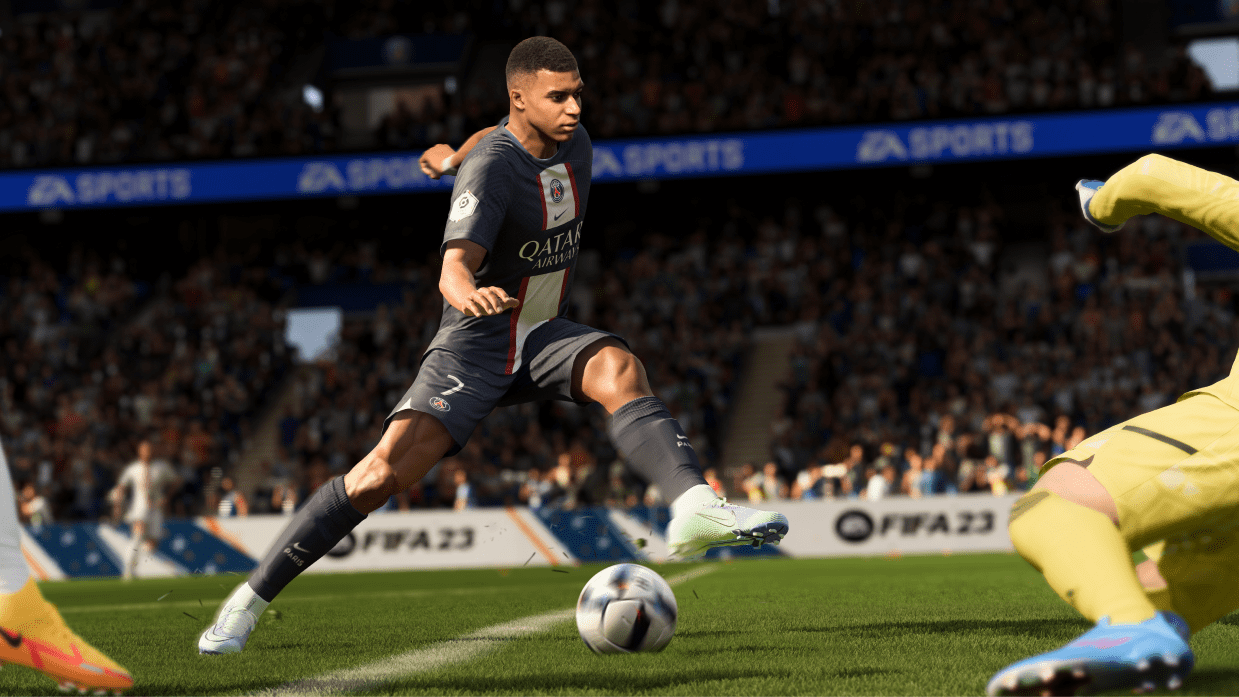Sony Faces Austrian Lawsuits Over FIFA 23 Loot Boxes
Posted on: October 18, 2022, 06:57h.
Last updated on: October 19, 2022, 12:41h.
Even though Sony only supplies a gaming console for FIFA 23 and other video games, it’s caught up in a lawsuit over loot boxes in Austria. It’s likely one of many that will surface, as lawyers are arguing that the in-game prizes are gambling, and therefore, violate Austria’s gaming monopoly.

A loot box is a virtual item which can be purchased in-game to receive a selection of other virtual items. These can range from customization options for a player’s avatar to weapons and armor.
The Sony/Austria lawsuit has been brewing since August 2021, when a then-17-year-old Austrian gamer first took on the tech giant, with the civil case getting underway yesterday.
Lawyer Ulrich Salburg asserts that his client gambled away €400 (US$393) on the console by buying FIFA points in the game to unlock certain players. He now wants Sony to be liable for damages.
Sony Responsible for Gamer’s Decisions
Players use the Electronic Arts-developed FIFA points they purchase to unlock random soccer stars. Because the outcome of the purchases is random, the plaintiff’s lawyer argues, this is the same as gambling.
By this logic, loot boxes are illegal, it is being argued. In Austria, only the state-run Österreichische Lotterien GmbH and Casinos Austria AG can offer gambling. The Austrian Gaming Act of 1989 authorized the government to offer games of chance unless it makes specific exceptions.
In addition, the lawyer says that because video game loot boxes are created by the developers who offer them exclusively in the games, the prizes are in violation of fair commerce laws, as there cannot be any competition.
Currently, Sony is looking at six similar lawsuits in Austria. It has attempted to move the case to a higher court, but hasn’t been successful. The legal battle began on Monday, but is already taking a few days off to gather new witnesses.
Sony has forced changes in the approach to loot boxes that could weaken the plaintiff’s case. Gamers can now see the contents of the packs before deciding whether to make a purchase. If they refuse, they have to wait 24 hours before trying again.
Loot Boxes Aren’t Gambling
The argument that purchaing loot boxes equates to gambling falls short on several levels, according to Sony. There’s no requirement that players buy them, the company says, as players can accumulate points in the game and use them to acquire prizes or player packs.
In addition, each loot box provides a reward. This is in contrast to gambling of any form, the company says, where there’s a high probability that there will be no prize at the end. This is part of the reason why the UK, the Netherlands, and other countries have determined that loot boxes aren’t gambling.
There’s also the realization that loot box prizes have no real-world value. They cannot theoretically be sold in exchange for money. What happens in video games stays in video games.
Austrian lawyers have caught the litigious loot box bug, launching marketing campaigns to drum up business. They offer to recover gamers’ expenses and hope all players who purchased in-game prizes will step forward.
Because loot boxes are gambling and unlicensed gambling is illegal, any purchases are invalid, according to the lawyers. This follows the same pattern that’s developed in Germany, where courts have ordered sportsbooks to return players’ money because they operated in the country illegally.
Still, the global debate continues. Since there are loot boxes in many computer games, the legal battle in Austria could have an industrywide impact. It could lead to lawsuits possibly totaling in the millions.
Related News Articles
Shuttered Las Vegas Gentlemen’s Club Euphoric Sues Rapper Blueface
Sony Faces Austrian Loot Box Gambling Fine In Judge’s Ruling
Most Popular
Mirage Las Vegas Demolition to Start Next Week, Atrium a Goner
Where All the Mirage Relics Will Go
Most Commented
-
Bally’s Facing Five Months of Daily Demolition for Chicago Casino
— June 18, 2024 — 12 Comments















